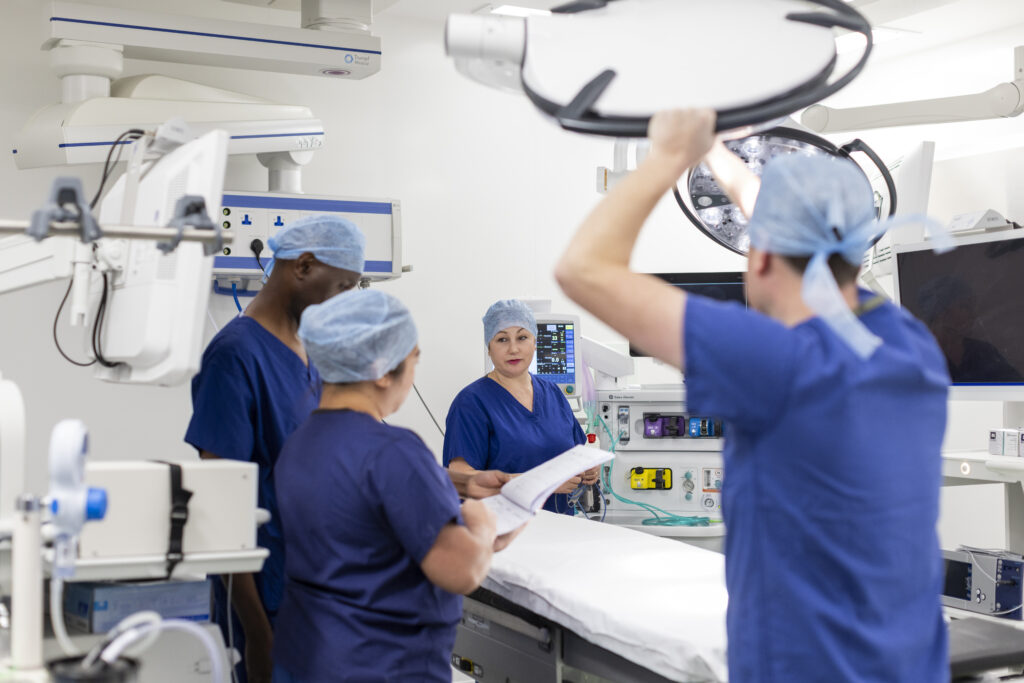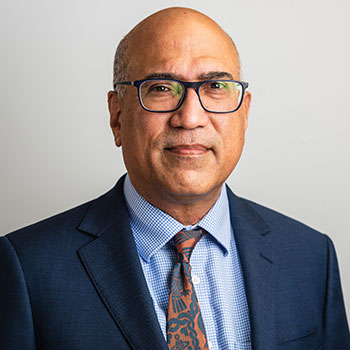What is an anal fistula?
An anal fistula is a small tunnel that forms between the end of the bowel and the skin near the anus, due to an infection in the anal canal causing a pus buildup. When the pus drains, it leaves behind a channel. Surgery is usually required as fistulas rarely heal on their own. The goal of surgery is to eliminate the fistula while preserving the sphincter muscles to prevent incontinence.
Anal fistulas create an abnormal connection from the anus to the surrounding skin, causing pain, swelling, and discharge. They often result from infected tissue or abscesses in the anal canal and can be linked to inflammatory bowel diseases like Crohn’s disease or follow surgical procedures or trauma.
Symptoms and conditions
Anal fistula surgery may be necessary when experiencing any of the following symptoms:
- Skin irritation and swelling around the anus
- A throbbing pain around the anus
- Bleeding or discharge when going to the toilet
- Pain when passing stools
Hospital fee guide price: £2,600*
More about pricingBefore surgery
Diagnosis and treatment
During your initial consultation, your consultant colorectal surgeon will start by asking about your medical history and any symptoms you’ve been experiencing, such as pain, swelling, or discharge around the anus. They’ll usually perform a physical examination of the area to check for external openings or signs of infection. Depending on the complexity of your fistula, you may need additional tests to map out its path and see how it relates to nearby muscles. These tests could include an endoscopic ultrasound or an MRI, which give detailed images of the fistula and any surrounding abscesses.
In some cases, your consultant colorectal surgeon might recommend a fistulogram, where a special dye is injected into the fistula opening and X-rays are taken to trace the tunnel. During this appointment, your surgeon will also talk you through your treatment options, explain the surgical procedure, discuss possible risks and recovery time, and answer any questions you may have.
Preparation for surgery
Preparing for anal fistula surgery involves physical and mental preparation. Your doctor may advise you to stop eating for a certain period before the surgery and may prescribe antibiotics to prevent infection.
You will also need to arrange for someone to drive you home after the surgery and help with daily activities during your recovery period.
During surgery
Surgical treatment for anal fistulas is typically performed under general anaesthetic, ensuring you are asleep and comfortable throughout the procedure. The primary goal is to eliminate the fistula while preserving the function of the anal sphincter muscles.
Fistulotomy
A fistulotomy is usually performed for simple, low-lying fistulas. In this procedure, the surgeon cuts open the entire length of the fistula tract, allowing it to heal from the inside out. The wound gradually heals into a flat scar made of healthy tissue. Fistulotomy is only considered when there is a low risk of causing difficulties with bowel control.
Seton Stitch
For more complex or high fistulas that pass through a significant portion of the sphincter muscle, a seton stitch may be used. This involves placing a thin piece of surgical thread (the seton) through the fistula tract. The seton is left in place to promote drainage, reduce infection, and begin the healing process. This approach helps to avoid cutting through the sphincter muscle initially. After this stage, further treatment, such as a fistulotomy, may be performed, depending on how the fistula responds.
Sphincter sparing procedures
There are a range of procedures that may be used to cure the fistula whilst preserving the anal sphincter muscle. These include insertion of glue or a collagen plug, or using a laser to close the fistula. Not all colorectal surgeons offer these techniques, but they can be discussed with you during your consultation.
After surgery
Recovery and aftercare
Recovery from fistula surgery typically takes several weeks, with most patients beginning to feel significantly better within 6 to 8 weeks. During the initial healing period, it’s common to experience some pain, swelling, and discharge from the wound site. Your doctor may prescribe pain relief to help manage any discomfort, and in some cases, laxatives may be recommended to soften stools and reduce strain during bowel movements.
Proper wound care is essential to promote healing and prevent infection. Be sure to follow your doctor’s instructions closely, including keeping the area clean and dry, and attend all scheduled follow-up appointments to monitor your progress. It’s important to avoid sitting or walking for long periods, especially in the early stages of recovery, as this can put pressure on the surgical site. Swimming and other activities that expose the wound to water should be avoided until your doctor confirms that healing is complete.
Depending on the nature of your surgery and the demands of your job, you may need to take some time off work and follow a specific recovery plan tailored to your situation. With proper care and rest, most people make a full recovery within two months.
Risks and complications
As with any surgery, there are risks and complications. Main risks are infection, bleeding and damage to surrounding tissue.
The surgeon may need to cut the anal sphincter muscles which can lead to incontinence. As part of the consultation with the surgeon, the risks of incontinence based on your fistula will be determined and discussed, and the likely affect on your bowel control will be explained.
Other possible complications are high temperature, nausea, vomiting, increasing pain, swelling, redness or discharge. If you experience any of these symptoms, contact your care team immediately.
Appointment and Treatment Plan
Initial Consultation
After discussing symptoms such as pain, swelling, or discharge with your GP, you’ll be referred to a colorectal specialist for further assessment. The specialist will examine the area, review any scans or test results, and determine the best course of treatment.
Treatment Planning
During your specialist appointment, your medical history and current symptoms will be reviewed in detail. If the fistula is low and straightforward, a fistulotomy may be recommended. For more complex or high fistulas, a seton stitch may be the preferred initial approach. The doctor will explain the reasoning behind the chosen method and what to expect before, during, and after surgery.
Pre-Op Assessment
If surgery is planned, you’ll be scheduled for a pre-operative assessment. This involves checking your general health, reviewing any medications you’re taking, and running routine tests such as bloodwork to ensure you’re fit for the procedure.
Procedure Day
On the day of the operation, you’ll come to the hospital for day surgery. Under general anaesthetic, a fistulotomy, a sphincter sparing procedure, or a seton stitch insertion will be performed.
Aftercare and Discharge
Following the procedure, you’ll be monitored briefly in recovery before going home. You’ll receive clear aftercare instructions, including how to keep the area clean, manage discomfort, and when to return for follow-up. If a seton has been used, further procedures may be scheduled after the area has settled.
Experts
We are proud to provide patients with access to a wide range of clinicians, chosen specifically for their knowledge and reputation in their area of expertise. Our experts align with our values: putting you at the centre of your care and educating you on your options at each step of the journey. We encourage you to learn more about our clinicians and how they can help you below. As always, please contact our patient services team if you require any additional information.
We offer 3 ways to pay for your treatment
We exist to take the stress out of private healthcare.
Our payment options are designed to offer you easy access to our treatments and services. You can choose to pay on the day, spread the cost, or use your private medical insurance.
Our patient services team will guide you through the process, providing clear costs and support throughout your course of treatment so you can focus on the thing that matters most – your health.
Whether you pay in advance, spread the cost, or use your private medical insurance, rest assured you will be receiving exceptional care 365 days a year.
Pay in Advance
Even if you do not have medical insurance, you can still get quick and comprehensive access to private medical care.
We provide transparent pricing from your initial consultation to the completion of your treatment so you know where your stand, every step of the way.
We accept all major debit and credit cards, as well as Apple Pay for UK residents. Please note that we do not accept cash or cheques.
Pay monthly
Paying for your treatment at OSD Healthcare doesn’t need to mean settling the full cost in one go.
Many of our treatments have a pay monthly option that allows you to spread the cost of your treatment over 12 months with no credit checks required.
A minimum spend of £300 does apply. We’ll take your first payment upfront and then arrange a direct debit for your monthly payments thereafter. It’s that simple.
Pay using PMI
We are recognised by all major health insurance companies and with our extensive range of services, there are lots of benefits to using your insurance with us. Our patient services team is here to answer any questions you may have about using your private health insurance with us.
Please bring along your policy details including your scheme details, membership or policy number, expiry date and confirmation of eligibility to claim (i.e. your authorisation number). If you do not have these details with you, we will require payment from you on the day. Patients are liable for any amounts not settled by their insurer.
Pricing
Procedure price subject to bespoke quotation.
Additional consultant fee not included.
FAQs
Fistula surgery is not considered major surgery, however it is complex surgery due to the requirement of treating the fistula while preserving the anal sphincter muscles. It’s important to have a skilled colorectal surgeon to operate to minimise risks and ensure effective treatment.
The urgency of fistula surgery depends on the symptoms and the risk of complications. While some anal fistulas may not require immediate intervention, others, especially those that cause high temperature, severe pain or abscess, may need prompt surgical treatment to prevent further infection or damage. A timely diagnosis and treatment plan, often involving imaging tests and a thorough medical history review, is essential to determine the best course of action.
Healing time for a fistula depends on the type of surgery and overall health. Recovery from fistula surgery takes several weeks. Most patients will heal in 6-8 weeks. However, the complexity of the fistula, following aftercare instructions and the body’s natural healing process can affect the duration. Wound care, bowel management and follow-up appointments are key to a smooth recovery.
Medically reviewed by Mr Gary Atkin - Consultant Colorectal & General Surgeon on 16/06/2025







